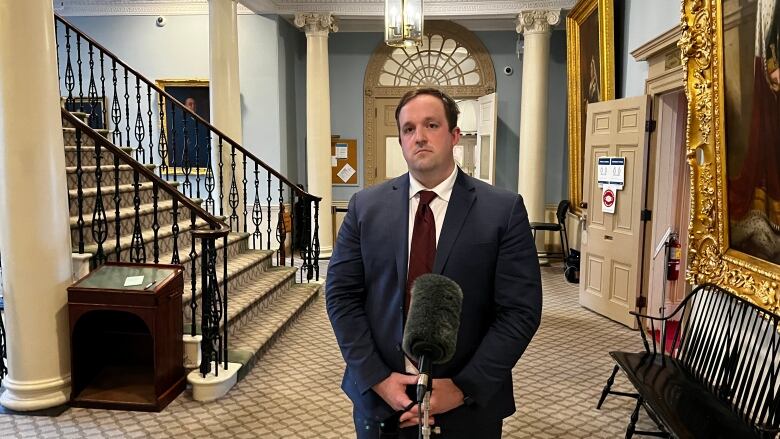N.S. modifies controversial mental health bill, but won't shelve it
'You could talk to 10 different psychiatrists and have 10 different opinions,' minister says

The Nova Scotia government is making small changes to amendments it is proposing to the province's Involuntary Psychiatric Treatment Act.
It is pushing ahead over the objections of opposition members and medical law experts, as well as concerns from some of the medical staff who use the law.
Brian Comer, the minister responsible for the Office of Addictions and Mental Health, proposed three changes during debate Wednesday evening on Bill 120. Two of the changes provide greater clarity surrounding when the law can be applied, while the third is a small adjustment to the wording.
"They seem like minor grammatical amendments, but I think they're significant," Comer told CBC News after a vote to send the bill to third and final reading.
He called it an "act of balancing" between "people who think the act is too restrictive versus people who think the act doesn't go far enough."
Role of decision-maker
Originally, the bill proposed that a substitute decision-maker could counter a patient's wishes if"the patient's instructions would endanger the physical or mental health or safety of the patient or another person."
Under the change proposed and adopted Wednesday by the House, that decision-maker could intervene if they have "reasonable and probable grounds to believethat[a patient's wishes] would endanger the physical or mental health or safety of the patientor another person."
That lower threshold would also apply to another instance where a patient's wishes run counter to their health or the health and safety of others.
Although those changes passed, opposition party members unsuccessfully tried to convince the governing PCs to shelve Bill 120 until it could seek the advice of those who have expressed concerns about thechanges.
NDP calls for more consultation
New Democrat MLA Claudia Chenderimplored the government to slow down passage of the changes.
"If you acknowledge that it needs to be amended, just wait a few more months," said Chender.
"Go back, consult the people. Good chance, everyone's still not going to be happy when you come back with the bill, but you can at least say that you've properly consulted and done the work."
Outside the chamber, Comer dismissed that suggestion.
"The difficult aspects with the act itself, you could talk to 10different psychiatrists and have 10different opinions essentially," he said. "It's a very difficult act to balance, but I do think that this does do that."












_(720p).jpg)


 OFFICIAL HD MUSIC VIDEO.jpg)
.jpg)



























































































